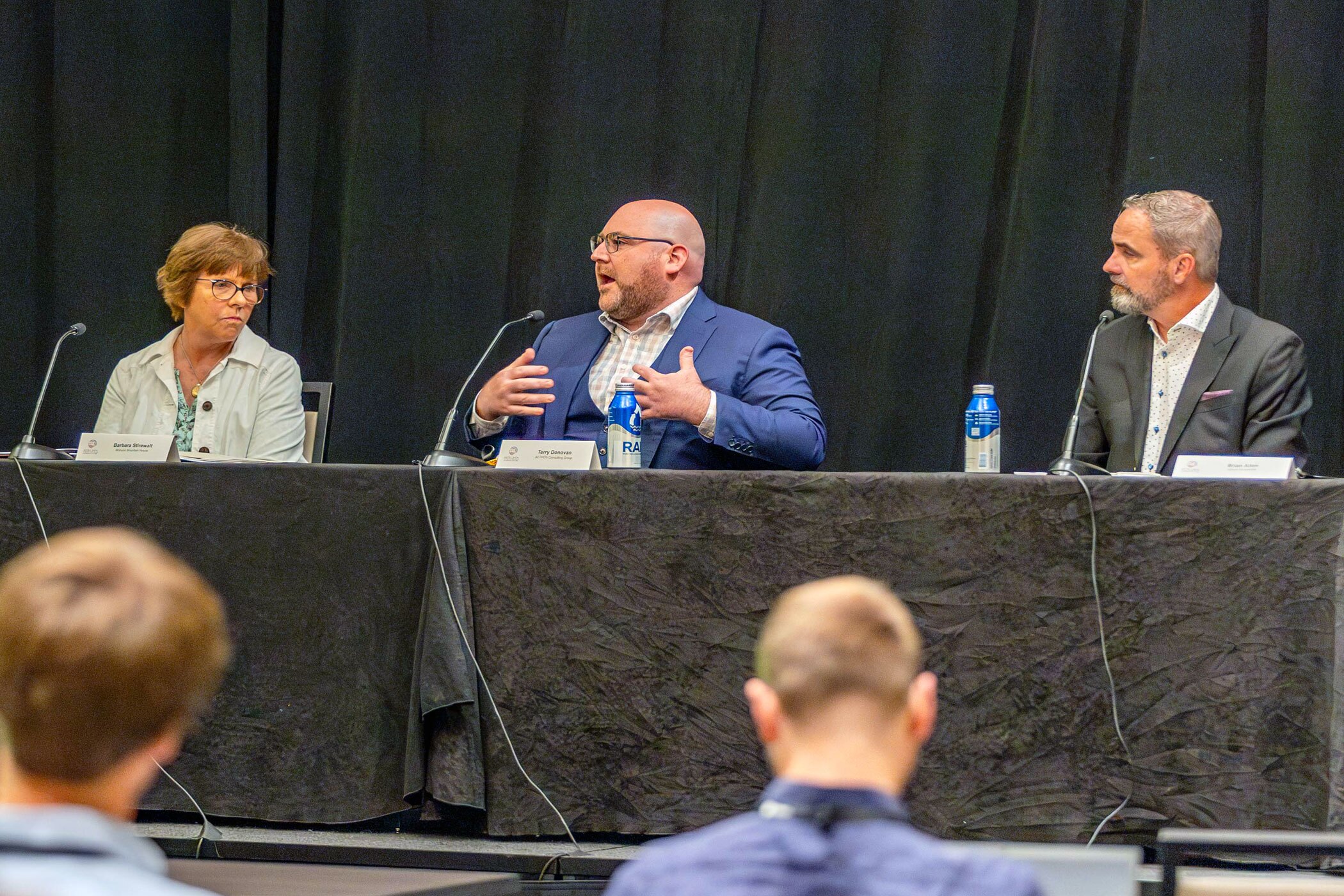NASHVILLE, Tennessee — Over the years, labor challenges have cast a shadow over the hotel business, and hoteliers are still trying to restore hospitality's reputation among job seekers looking for a long-term career.
A panel of hotel experts discussed what's working to unearth the employees who have a service mindset and invest in their development during the recent Hotel Data Conference.
Brian Allen, vice president of operational performance at hotel operator Atrium Hospitality, said one of the biggest misconceptions about the hospitality industry is that it's filled with low-skilled jobs.
"I've worked with some incredibly talented, extremely bright individuals throughout my career, some great mentors have taught me that it doesn't necessarily matter if you have a degree or not, because what really makes a difference is your talent. And are you service-oriented, and do you fit within the hospitality space?" Allen said. "That's been one of the primary misconceptions that it's just a lower-skill task, but I think it's high-skill when it comes down to it, and one of the important things is progression along the way comes from the individual."
The hospitality industry's labor force is diverse generationally, with Gen Z, Millennials, Gen X and baby boomers all working together. Barbara Stirewalt, general manager of Mohonk Mountain House — a mountain resort in New Paltz, New York, west of Poughkeepsie — said 39% of the property's employees are Gen Z and that communicating effectively to different generations of employees is key.
"We know it's very much a Gen Z, millennial focus that they want to participate, they want be informed. They want to have a voice. And so we really lean in to that," Stirewalt said. "I lead a GM roundtable with staff, our president and CEO — who are the fifth-generation leaders — lead a roundtable with managers and supervisors, and then we hold town halls with all of our staff.

"Both big decisions and small decisions are made collaboratively. We were founded by Quakers. We really live that ethic, you know, really involving everyone, and ways to find community through good communication, but also ways to involve your team. It's really essential in all generations."
Each generation brings a different skill set to hospitality work, Allen said.
"Some of the benefits you gain is a very diverse perspective from the wisdom of the older workforce, and then you also get some of the innovation from the younger team members that look at it a little bit differently," he said. "So you end up with a very good cross section of perspectives to learn from, because it's not just a top-down approach that you can get from your workforce. It's sometimes the people that are actually in there doing the work every day that give you the best ideas."
Training and retention
How hotels attract new hires and engage them during the training process is a major challenge to filling hospitality's labor gap. Cutting back on training just isn't feasible, Stirewalt said.
"The first things that get cut are travel and training, but not at our property. We cannot do that, we won't do that, and we're very, kind of hard line about that," she said. "I'd also say, really take a look at your onboarding process. There's a lot of statistics about how you lose a lot of people within this of industry within the first 90 days, so we need to be talking to them and surveying them."
Terry Donovan, executive vice president of AETHOS Consulting Group, said hiring managers should prioritize transparency during candidate interviews.
"Industrywide, turnover was much higher in 2022 than it is today — that's C-suite down the line level," Donovan said. "And I think companies have gotten a better idea, they're spending more, I know they're spending more time in the interview process, being more transparent on this is what the job is, not trying to sell it or just getting someone through the door."
Once a company has made the hire, managers should set up mentorship opportunities for the new employee, regardless of whether they work on property at a hotel or in the corporate office.
"The mentorship part of that, that doesn't cost anything besides time and attention," Donovan said. "But that could really mean the difference between developing someone, keeping them there through a bad couple of weeks, or them just saying, 'I'm going to go work somewhere else.' That kind of person-to-person connection is so important right now to keeping people."
Identifying potential in young employees and having honest discussions about career development in hospitality are also a necessity, Allen said.
"Who are your skilled workers, who contributes, who shows up, who does the great work for you? ... The future of hospitality comes from the people that are coming in at the ground level today," Allen said. "And if you don't have career mapping and planning in place to help a front-desk agent know what it means to become a supervisor, what it means to become the manager, what it means to maybe become an [assistant general manager], and potentially GM. If they can't see that path, and they don't know what the path is, then they're going to get frustrated and that causes them to seek other employment."
